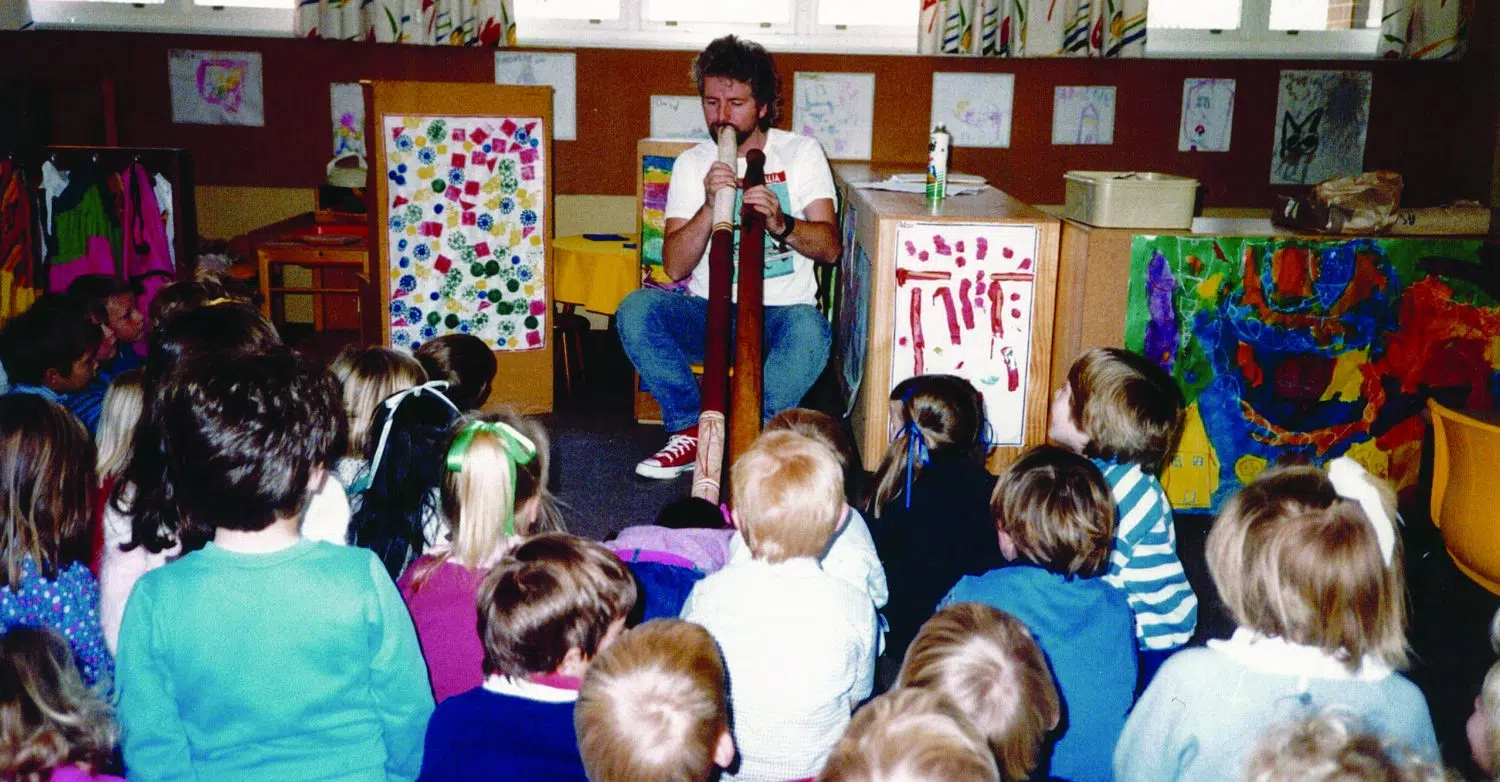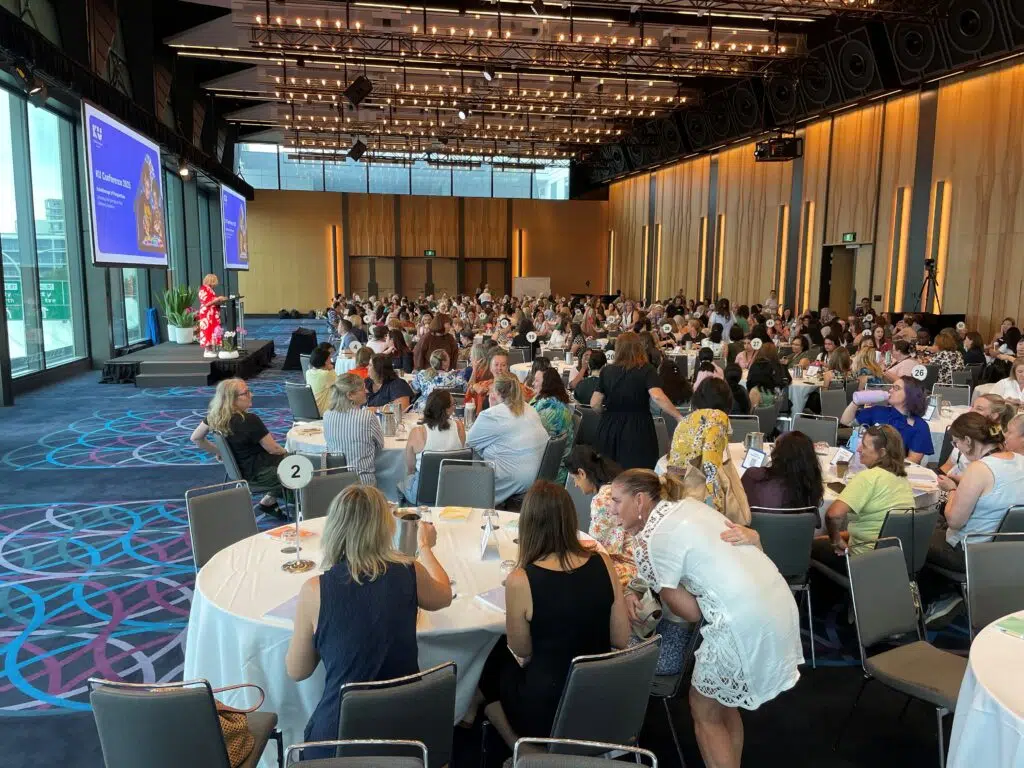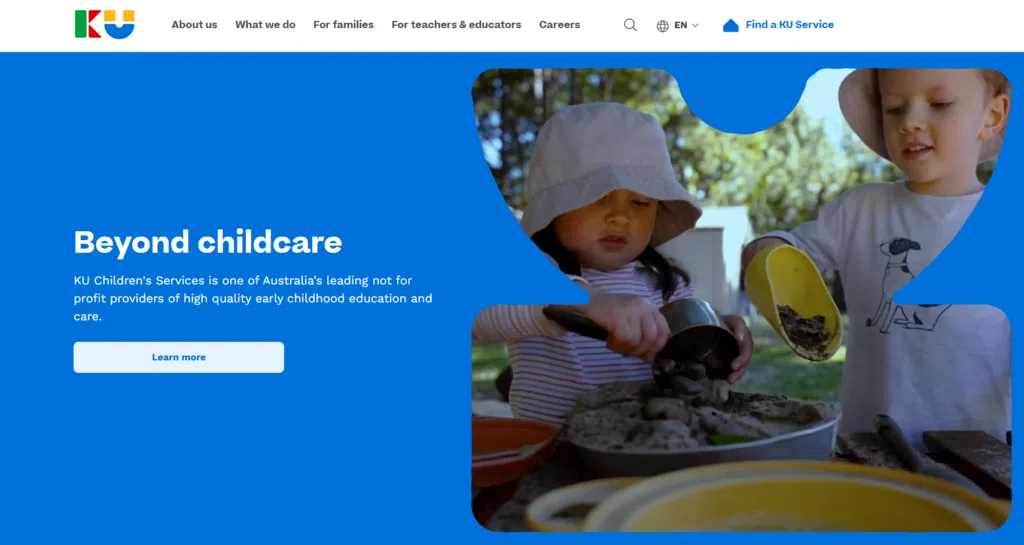
Advocacy
As Commonwealth funding largely focuses on the expansion of work-related child care, the Kindergarten Union is at the forefront of advocating for funding for preschools, and the maintenance of high licensing and staffing standards in long day care. In 1985, the Union engages in extensive lobbying against the cessation of Commonwealth Block Grants to States for preschools. In collaboration with Sydney Day Nurseries and the Nursery Schools Association, the Union undertakes negotiations with the Independent Teachers Association and Miscellaneous Workers’ Union to safeguard wages and conditions of staff, resulting in State Awards for teachers and miscellaneous workers in preschools and long day care services. The Union also lobbies the Commonwealth to ratify the Convention on the Rights of the Child in 1989.
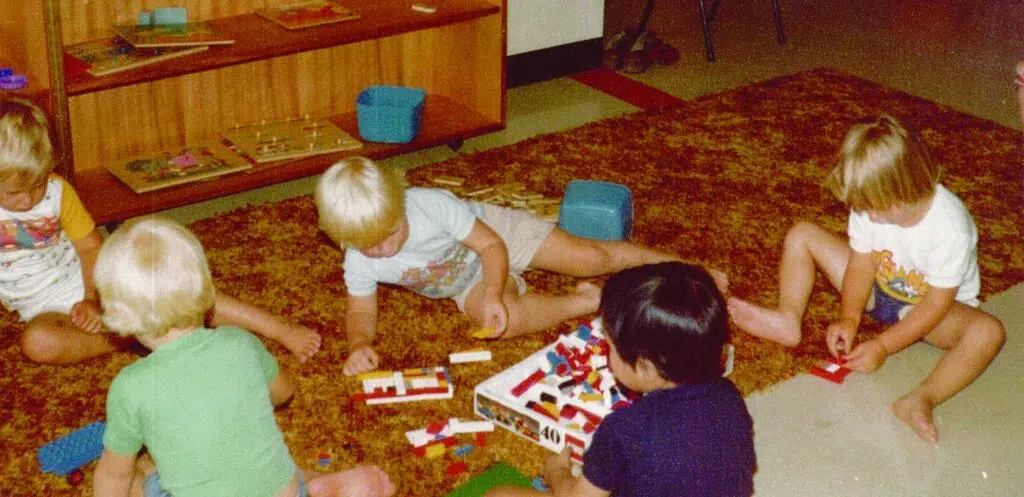
Restructuring
In 1981, the Kindergarten Union employs its first Executive Officer, Meredith Griggs. In a risky but ultimately visionary move, the organisation purchases 129 York Street, Sydney in 1982, with Playways taking the ground floor shop frontage. Only a year later extensive renovations to the Queen Victoria Building across the road, prove somewhat disruptive to both Head Office and Playways!
Increasingly complex requirements related to funded programs, and the introduction of fee relief for eligible parents of children attending long day care, results in more complex budgeting and burdensome financial control and auditing. Accordingly, the Union introduces new streamlined administrative systems and a computerised pay-roll system, new Articles of Association in 1982 (changed again in 1989), and develops organisational Regulations, by-laws and policies (e.g. multi-cultural, health and safety, gender equity).
In 1983, a Staff Association forms. As the largest employer of early childhood staff in NSW (492 in 1986), the Union introduces a program of staff development, including seminars and workshops held after hours and on weekends. The organisation offers staff the opportunity for professional growth and development through transfers to higher positions, and exchanges across services, while employing highly skilled and experienced educators as Advisors to work with staff.
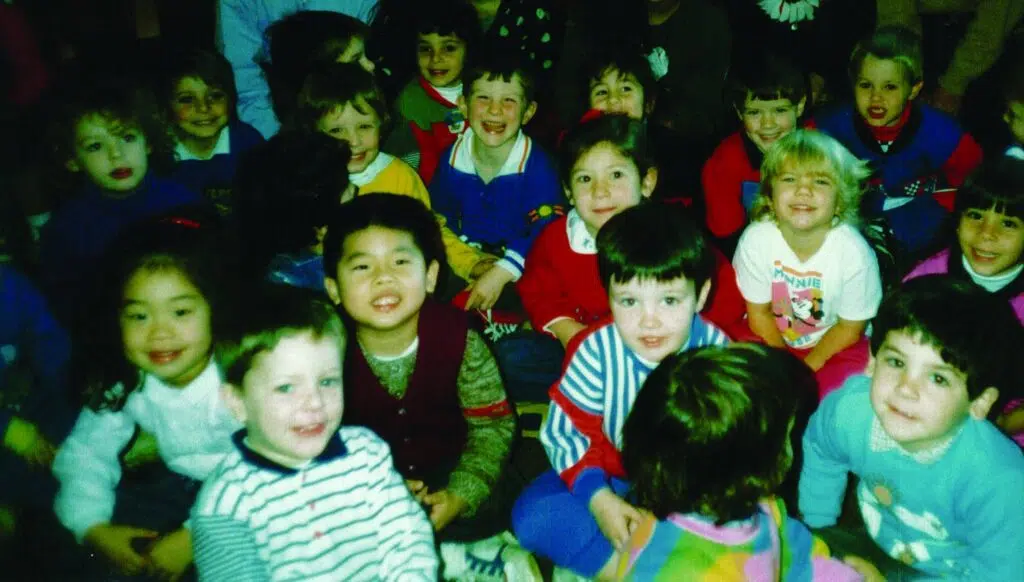
Inclusion
The Kindergarten Union’s commitment to social justice and inclusion consolidates with the introduction of a dedicated Special Education Advisory team. This initiative paves the way for the Union’s expansion into related areas, including the Adult Migrant English Program, and access to government funding for the inclusion of children with special needs.
The Department of Immigration and Ethnic Affairs funds KU to administer a system of child care for parents attending English classes provided by the Adult Migrant Education Service. In 1984, under the Commonwealth Employment Programme and National Employment Service for Aborigines, the Union employs a number of ‘disadvantaged’ and Aboriginal adults, some go on to become permanent employees.
Diversification
In 1982, the Early Childhood Resource Centre opens at Westmead to loan toys, special equipment and resource materials to services and parents. In 1986, the Regional Resource Centre (renamed Dorothy Francis Resource Centre in 1988) operates in several locations across Sydney.
Kindergartens begin to extend their operating hours and provision for children under three years. In 1983, Frank Saywell Kindergarten in Moore Park, becomes the first kindergarten in NSW to convert to a long day care centre, catering for children birth to 5 years of age, thus the Kindergarten Union embarks on the management of long day care centres in response to the changing needs of families.
This shift in focus enables the organisation to take greater advantage of the Government’s investment in work-based care and increase the number of long day care services, later in the decade.
The last significant act of the 1980s is the development of KU’s Corporate and Strategic (5 year) Action Plan in 1989: “designed to provide a framework within which the Kindergarten Union can review past practices, consider alternatives and move with renewed vigour towards the achievement of goals.” The plan results in the establishment of KU Early Childhood Management Services – “a pro-active business-oriented consultancy service division” providing advice and assistance for corporate child care.

